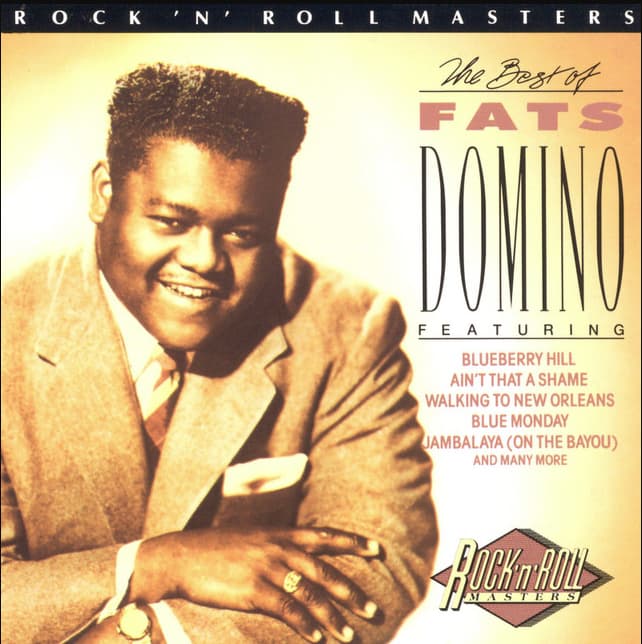
Fats Domino – Jambalaya (On the Bayou): A Nostalgic Celebration of Joy and Simplicity
When Fats Domino released his rendition of “Jambalaya (On the Bayou)”, the world was transported to the heart of Louisiana, where the rhythms of life are as rich and flavorful as the famous Creole dish itself. This song, originally written by Hank Williams in 1952, found a new lease on life through Domino’s vibrant interpretation, capturing the essence of a culture steeped in tradition and community.
Debuting on the charts in 1961, Fats Domino’s version of “Jambalaya” quickly resonated with audiences, reaching notable positions on both the Billboard Hot 100 and R&B charts. His rendition brought an infectious energy that only he could deliver, with his signature piano style infusing the song with a rhythm that was both lively and soulful. As a beloved figure in the music world, Domino’s take on this classic became a staple in his repertoire, further solidifying his legacy as one of the pioneers of rock ‘n’ roll.
The story behind “Jambalaya (On the Bayou)” is as flavorful as its namesake dish. It paints a vivid picture of life along the bayou, where community gatherings are marked by music, dance, and of course, food. The jambalaya mentioned in the song is more than just a meal; it symbolizes togetherness and celebration. The bayou serves as a backdrop to life’s simple pleasures, where people come together to share stories and create memories.
Fats Domino’s version of this song captures these themes with warmth and authenticity. His voice conveys a sense of nostalgia that speaks to listeners of all ages but perhaps resonates most profoundly with those who have experienced similar joys and camaraderie in their own lives. For older generations, “Jambalaya” is a reminder of times when life moved at a gentler pace and community ties were woven through shared experiences and traditions.
The lyrics are a joyful invitation to join in on the festivities, promising good times with friends and family. Words like “me oh my oh” echo the playful spirit of the occasion, while references to traditional foods like crawfish pie evoke sensory memories that many can relate to. It’s no wonder that this song has endured over the decades, finding new audiences while evoking fond recollections for those who remember its original heyday.
In terms of musicality, Fats Domino’s arrangement adds layers of richness to Hank Williams’ composition. His piano work is both buoyant and grounding, providing a steady rhythm that invites listeners to tap their feet or sway along. The blend of rock ‘n’ roll with Cajun influences creates an irresistible groove that captures the spirit of Louisiana’s vibrant culture.
As we listen to Fats Domino’s “Jambalaya (On the Bayou)” today, we are reminded not just of the artist himself but also of an era defined by its music and communal spirit. This song serves as a testament to how music can transcend time and space, bringing people together across generations. It is a celebration not just of life’s simple pleasures but also of the enduring power of music to connect us all.